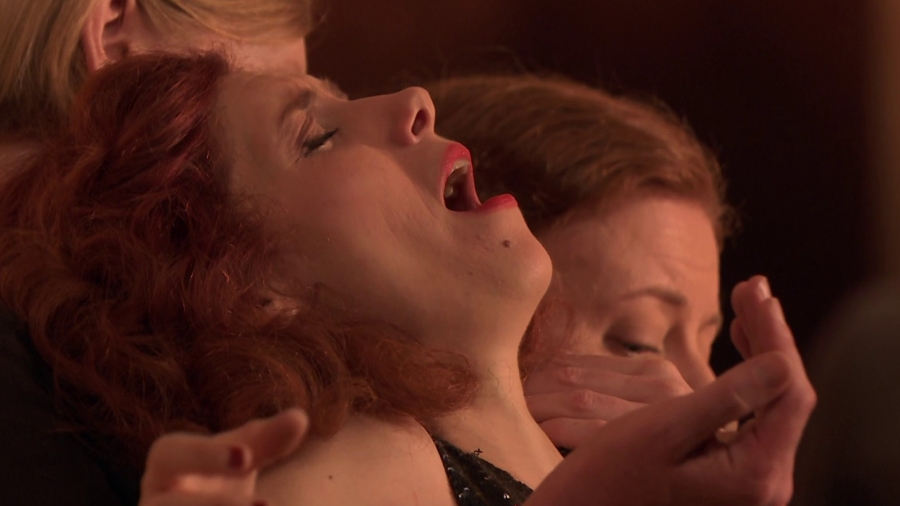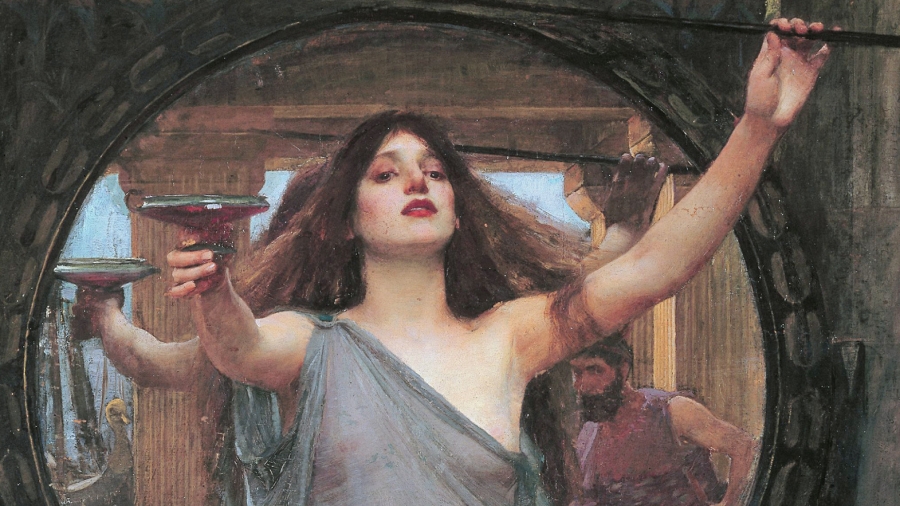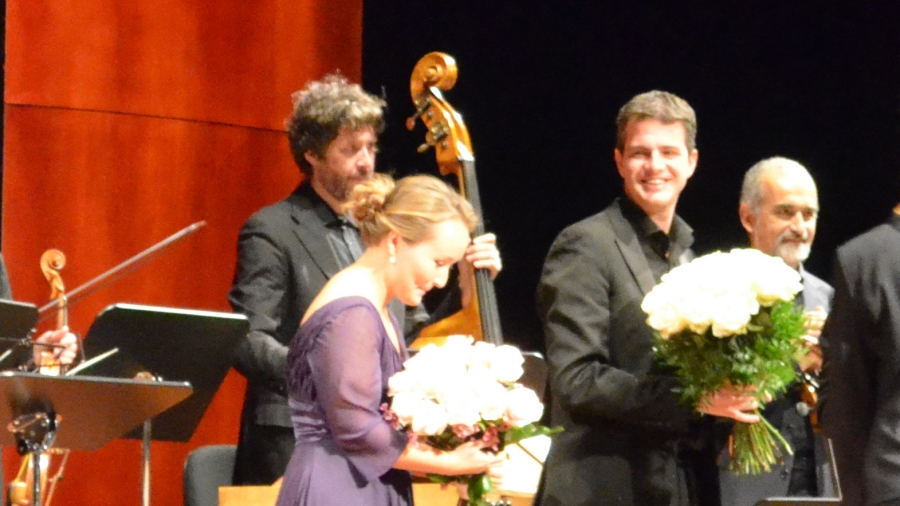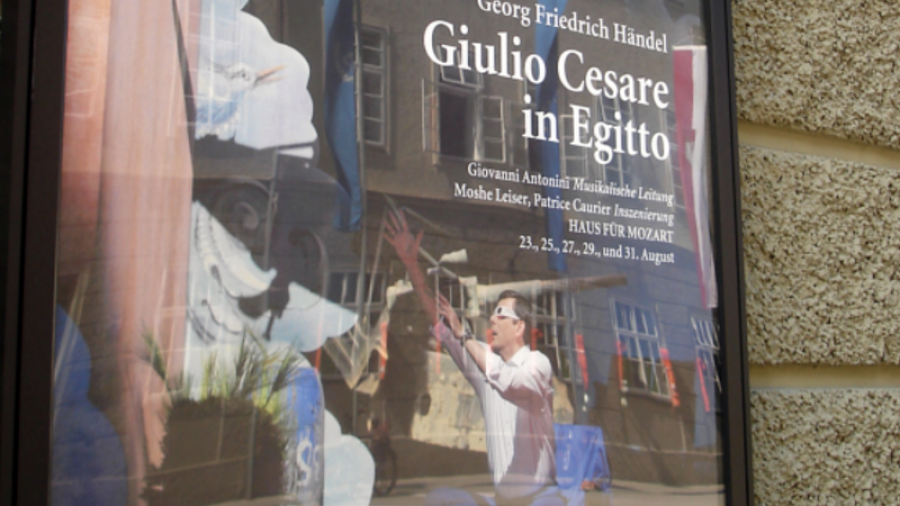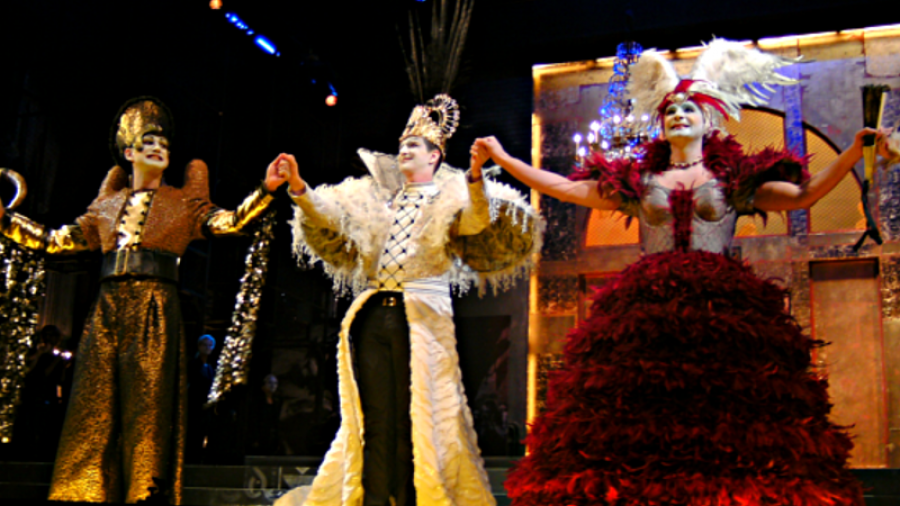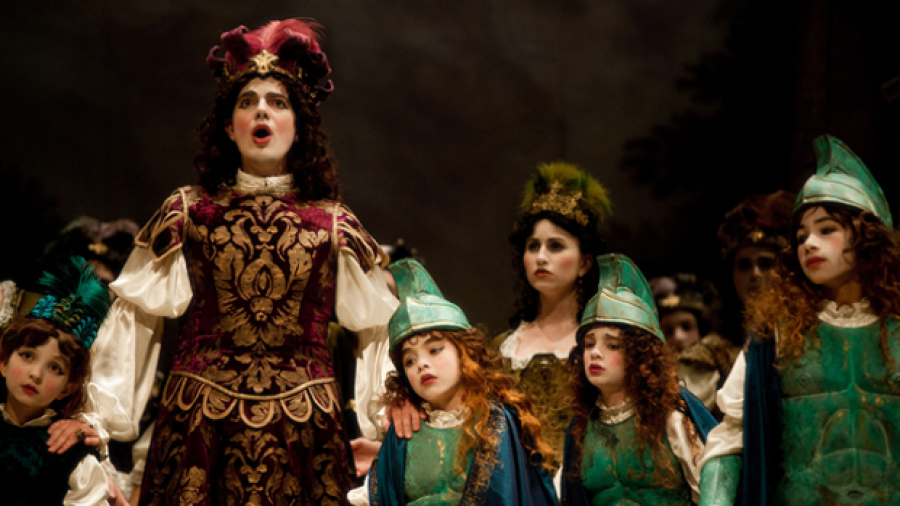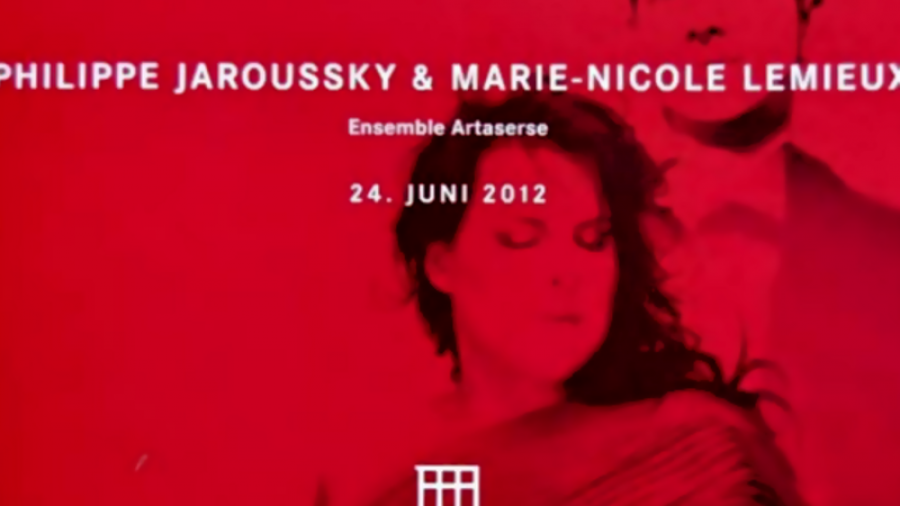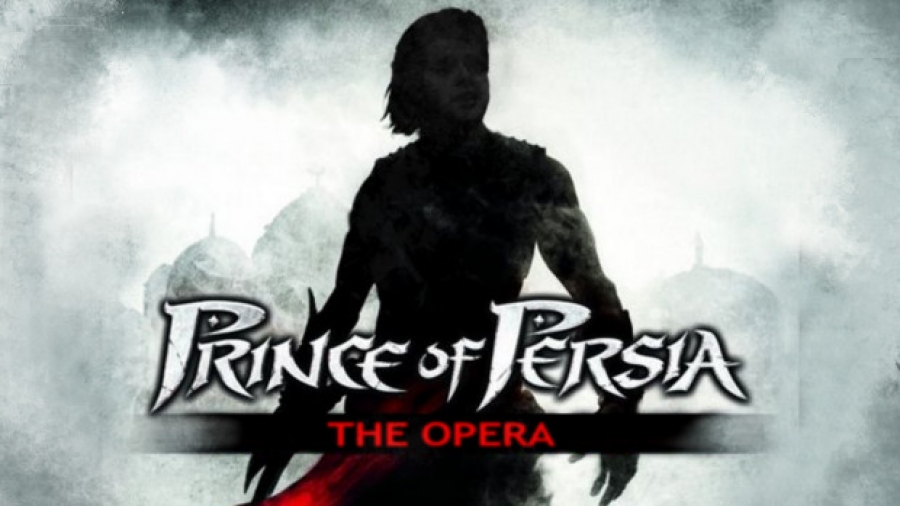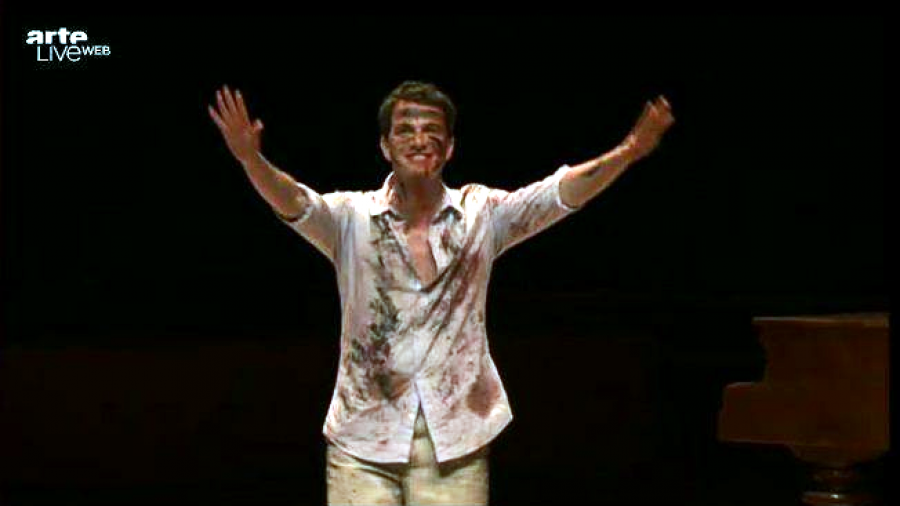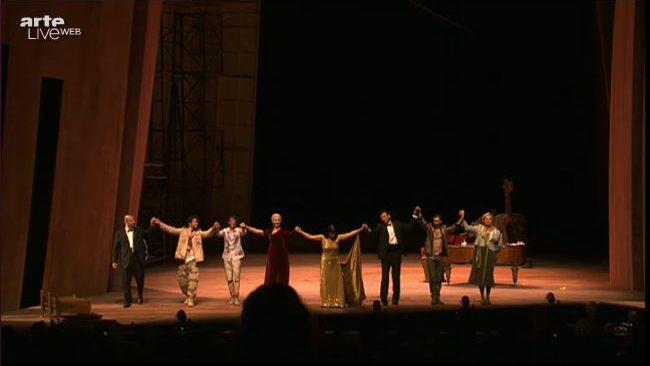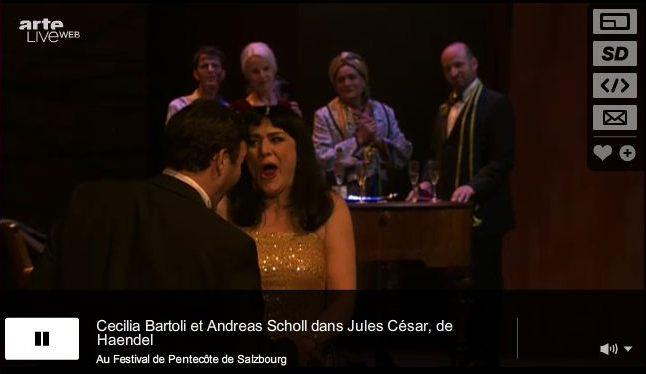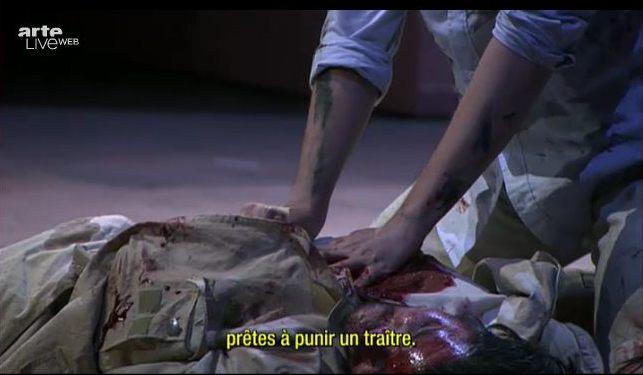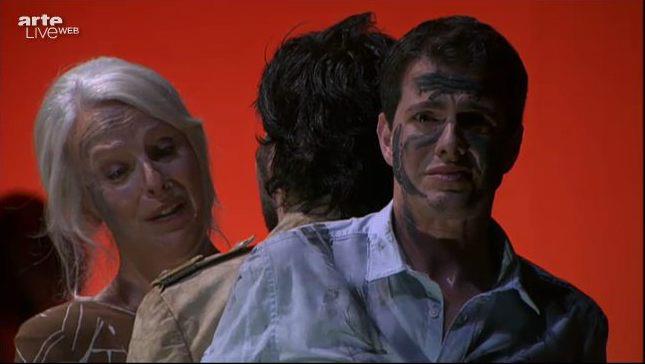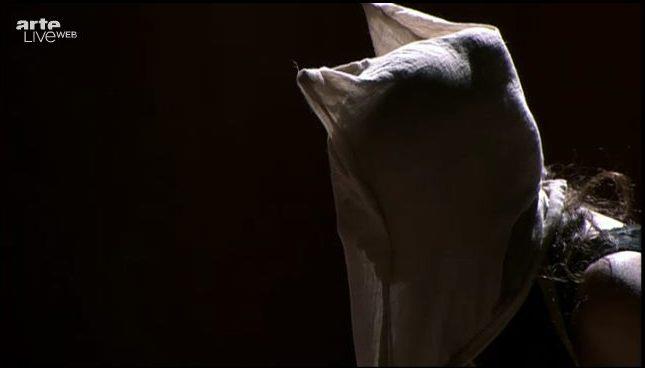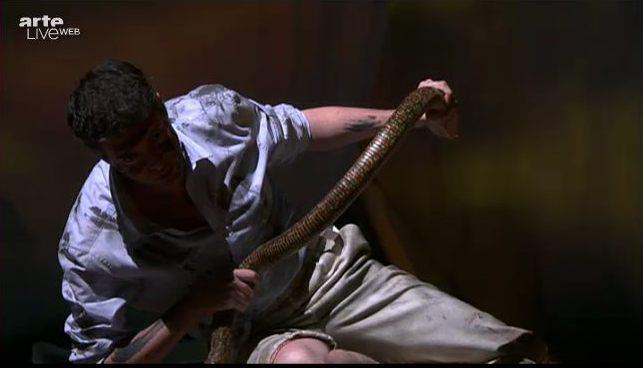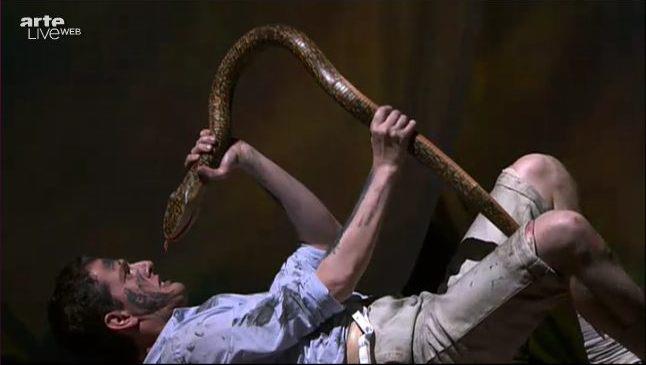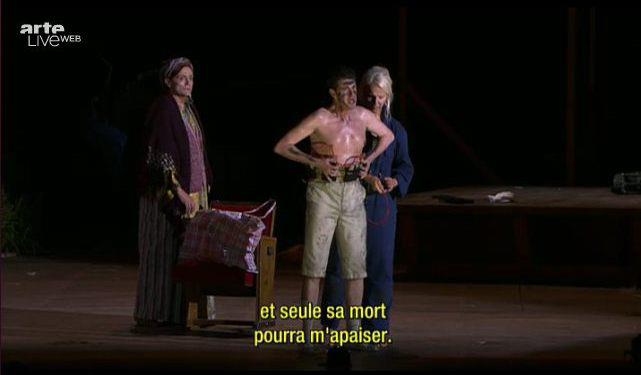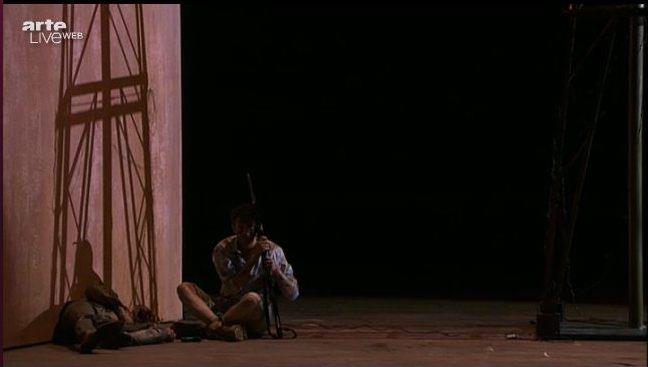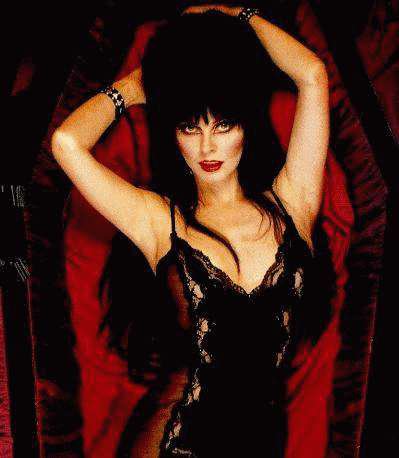Alcina was one of the most eagerly awaited productions at the festival in Aix-en-Provence this year. Directed by Katie Mitchell, and with Patricia Petibon and Philippe Jaroussky as the star-crossed lovers – what’s not to love?
Suffering Made Art – Händel’s Alcina
If I am allowed to talk about Alcina, I tend to get wordy. This is why I thought it would be a good thing to make a separate post about the opera, the music, and the characters, and detach it from the review I wrote about the performance at the festival in Aix-en-Provence.
“Qui je suis?” – Philippe Jaroussky in Neumarkt
As ye have done it unto one of the least of these my brethren… After Barcelona, São Paulo and Paris, on the 15th of April 2015, Philippe Jaroussky brought Verlaine to the small town of Neumarkt in Frankonia, bestowing on us a golden evening.
Stairway to Heaven – Philippe Jaroussky and Julia Lezhneva in Baden-Baden
The concert at the Festspielhaus Baden-Baden was a highlight throughout: Jaroussky and Lezhneva, I Barocchisti and Diego Fasolis with a showcase of works by Pergolesi and Vivaldi left nothing to wish for.
Bravura In The Face Of Trash
A personal note: I know I am terribly late publishing this. Something always got in the way. For the sake of completeness: Here’s my review. The performance was at the Felsenreitschule, Salzburg, on August 29, 2012.
by Lankin
I had seen the production of Julius Caesar already as a stream from the Pfingsfestspiele; to see it live was something entirely different still. As I wrote down my opinion on the staging before, I will now focus on the singers, and the performance of that night.
The Making Of Artaserse
– By Lankin –
Artaserse – Leonardo Vinci – Nancy, 02. Nov. 2012
I’m sure you know that feeling – when you’ve seen a movie, and watch the making-of, the point of view gets tilted. All the actions, the plot, the intensity, can now be watched from an outsider’s point of view. The illusion crumbles; it’s not real, it’s just actors, playing their roles.
Why do we love making-ofs? (Well most of us do.) It must be the change of perspective, and also the promise to see the actors as human beings – to see them differently, and to see more of them than they would actually show if they stayed in character.
A Lovely Mess – “Niobe, Regina di Tebe”
How do you prefer Mr. Jaroussky – as “an enlightened demi-god,” an “enraged, jealous husband,” or rather as “a bellicose warrior-king?”
Whatever your preference, Agostino Steffani’s “Niobe, Regina di Tebe” is the opera for you. (For me? Yes please, all of the above!)
The livestream is up! You can listen to last year’s production of “Niobe, Regina di Tebe” in full length.
http://www.wgbh.org/articles/Boston-Early-Music-Festival-Niobe-Regina-di-Tebe-7099
Lovers, I can tell you …
“Le Tourbillon des Sentiments” – 24 June 2012, Baden-Baden Festspielhaus
– by Lankin –
The pieces from the programme “Le Tourbillon des Sentiments” may have been written in the 17th century; however, Marie-Nicole Lemieux & Philippe Jaroussky, supported by the ‘Ensemble Artaserse’, made them seem brand new. After all, love as a topic has never become out-dated.
“Amanti, io vi so dire” – “Lovers, I can tell you … “ could as well have been the title of the programme. In depth, we have been lectured that night on the topic of love by the utter experts, as we came to realize. From the first flame of lovesickness to Hekuba mourning her husband’s death, almost every flavour and shade of love was present. (No shades of grey though, as we are happy to report.)
Artaserse, Prince of Persia
It’s only a few months now until the premiere of “Artaserse.” I thought I would just collect a few links that could be helpful to skim through, to get into the spirit; of course I’m happy if anyone can amend the collection.
– by Lankin –
The Opera
There are many operas called “Artaserse” using the same libretto, Pietro Metastasio‘s. Leonardo Vinci‘s “Artaserse” was the first, composed for the audience in Rome, in 1730. Hasse came shortly after, as well in 1730; he composed his one for the audience of Venice.
The story is based on the historic figure of Artaxerses I, who succeeded his father Xerxes on the throne of Persia in 465 BC.
A Nightingale Amongst Falcons – Jaroussky’s Sesto In Salzburg
A dream cast, a great orchestra, an ideal location, and a live-stream — there can never be too much of a good thing, or so they say, but the latest production of Julius Caesar of the Salzburger Pfingstfestspiele, got close to prove otherwise.
– by Lankin –
The evening was a succession of highlights; at times it was hard not to lose track of the whole. Bartoli, Scholl and Dumaux pulled off their parts with enormous skill, and tremendous routine; they had appeared countless times in their respective roles before this production. Anne Sofie von Otter and Philippe Jaroussky were outstanding; I am always impressed how much Jaroussky adapts to the vocal style of his partners, and in the case of von Otter, with a splendid result; this is especially important, as the duet is a vital part of both their roles, as it shows the emotional connection between the characters, their similarities and differences. Where Cornelia has only utter hopelessness to offer, Sesto adds the poignant edge of futile hope to it that only youth can have.
http://www.youtube.com/watch?feature=player_profilepage&v=M4RSlu2nuDg
CORNELIA & SESTO
Son nata a lagrimar
Son nato a sospirar,
e il dolce mio conforto,
ah, sempre piangerò.
Se il fato ci tradì,
sereno e lieto dì
mai più sperar potrò.
Son nata…
*
I was born to weep
I was born to sigh,
And I shall mourn forever
My sweet consolation.
If fate has betrayed us,
I shall never again hope for
A serene or happy day.
I was born…
The cast
The cast was almost too great to be true. For easy reference, I will just add a listing here:
Giulio Cesare (Julius Caesar) – Andreas Scholl
Cleopatra, Queen of Egypt – Cecilia Bartoli
Tolomeo, her brother and husband (!), King of Egypt – Christophe Dumaux
Cornelia, widow of Pompey – Anne Sofie von Otter
Sesto, her stepson – Philippe Jaroussky
Achilla, Tolomeo’s General – Ruben Drole
Curio, a praetor, Caesar’s General – Peter Kálmán
Nireno, Cleopatra’s and Tolomeo’s servant – Jochen Kowalski
Il Giardino Armonico
Giovanni Antonini, Conductor
The main characters don’t really need an introduction, but I think I would mention the rest of the cast:
Ruben Drole in the role of Achilla was given a chance to introduce himself to the Salzburg audience by this production — his voice is almost too beautiful for an Achilla, who is mainly a brute. Jochen Kowalski’s achievements I won’t put in doubt: that night, however, he didn’t really render a good impression after all. I wished they would have left out his aria, because his acting skills were acceptable. The direct comparison with the other singers is bound to bring out the flaws rather than the strong points of his singing. However, I approve of him being cast there; it had the taste of a cameo appearance though — a glimpse of former lead roles of his, some good years past.
The opera
When the opera starts, Julius Caesar has just conquered Egypt. Cleopatra is supposed to be about 16 years old. Nevertheless, she is a queen, and she knows when her power is in danger. The Romans do not care much about Egyptian tradition, by which the succession via the female line is all that counts. Her brother (and husband!), Tolomeo, sees his chance: With Caesar as an ally, he might even keep some position, and power is what he craves. He thinks sending Caesar the head of a beheaded enemy, Pompey, will endear him. Caesar is not amused. Trouble ensues.
Pompey leaves behind his wife, Cornelia, and his son, Sesto. Tolomeo wants to degrade them, imprisoning Sesto and letting Cornelia work in the palace garden, and one doesn’t need to be particularly dirty minded to sense that he doesn’t have only flowers in mind.
Achilla, Tolomy’s vassal is fond of Cornelia, in a way. She also would be a good match, and thus, a good career move. He is wooing her in not exactly the most charming of ways, and Cornelia is not interested, even if it would maybe offer at least some protection from the assaults of Tolomeo’s.
Cornelia as an unmarried woman is threatened from all sides, she confirms Sesto in his plan for vengeance, and even Cleopatra approves, plotting against her own brother.
Jealousy, hate, a battle, and other hardships have to be overcome, until this initial mess evolves into a happy ending, at least on the surface.The plot isn’t only about power though; what no one could have foreseen is that Cleopatra falls in love with Caesar; and it is mutual.
The production
The production has been called “Jungle Camp in Egypt,” by a newspaper — “Das Dschungel-Camp” is a German reality TV show — but I refuse to be so quick in my judgement. For me, it had upsides and downsides. A quick round-up to start with:
Whenever someone states that something is exactly like something else, it is most probably wrong. At some point, all comparisons fail. The directors, Moshe Leiser, and Patrice Caurier are intelligent, so they know that. Yet, together with Christian Fenouillat, who was responsible for the stage design, they picked a cliché setting to start with, one that makes “Dynasty” seem complex in comparison.
Caesar’s conquest of Egypt is just like some war against a Muslim state? Let’s accept it, for a moment, as a working hypothesis, because this was one of the basic ideas of the Salzburg production. To detatch it a little, maybe, from actual events, it was set back, somewhere around the 70s or 80s, at some date where trousers with their waistbands pulled over the bellybutton seemed to be a great idea.
A comparison as daring as this is bound to break at some point — and the production played with this idea, as far as I gathered. By and by only tropes and quotes were taken out of history, just as Händel and the Librettists, Haym and Bussani did when they wrote Julius Caesar, so, it seems legitimate, after all. Of course, Tolomeo and Ceasar’s relation is somewhat historically verified, but the Parnassus scene at the latest breaks with any historic foundation. Also it is hard to picture the same Cleopatra singing “Caro!” and meaning it with Marc Anthony, and comitting suicide, after she has tested out various venoms of offended snakes on her slaves, calmly observing how they died.
Caesar in this production is a conqueror from the West, supposedly the EU, as a clue in the end is hinting. Actually, during the last 67 years, Europe was quite well-behaved, so this suggests the somehow decent approach that Caesar in the opera in fact shows. He despises people who only know cruelty. He prefers to ask first, he is just the type of guy.
Sesto is staged as an assassin with a background. He is equipped by his mother with a explosives belt even, but all references that could hint religion were left out. I liked it, because after all Religion in this context is never more than just used to gloss over personal motives of hate and disappointment.
The rest of the staging is set in the vague 80s, which means leopard print and high heels in abundance. (Agostino Cavalca as the costume designer is the expert here.)
No hope for humanity
There are two character triangles in the opera worth mentioning. One is Caesar and Cleopatra, with Tolomeo getting in their way, and one is Sesto and Cornelia, again, with Achilla and Curio at times, but again mainly Tolomeo in their way.
The intensity of von Otter’s and Jaroussky’s acting made Caesar and Cleopatra seem like a buffo couple at times. Even more, Caesar and Cleopatra having a good time in the sight of grief is not exactly a sign of empathy, so this enhanced the impression that this was a two-classed society.
The utter hilarity in the Parnassus scene — Cleopatra riding a torpedo while wearing a blonde wig — as well as other scenes made especially Caesar appear somewhat heartless. He only has one aria to show weakness and strength at the same time — his “Dall’ondoso periglio… ” (From the perils of the ocean.) Normally, this and the following “Aure, deh, per pietà,” (Zephyrs, come to mine aid) are some of the most moving moments of the opera. In this production, it didn’t suffice for me, however Scholl’s rendition was a valiant effort.
It wasn’t helped by half-dead soldiers crouching in pain at Caesar’s feet in that scene, and where a normal reflex would be to offer fist aid or last rites at least, he just stands there and sings, beautifully though. At the end he is hiding amidst the suddenly very dead soldiers, his face a grimace of disgust when he lies amidst the corpses of the men who died for him.
So, Caesar seems relatively heartless, and it rubs off on Cleopatra’s part; her sudden mood-swings seem staged as well. What in a teenager would just-so pass as charming seems vulgar and shallow; it doesn’t necessarily have the same effect when sung by a queen with a preference for black leather.
A Lot Of Almost-Sex & A Little Sexiness
That Scholl as well as Bartoli still managed to shine in their arias is a great achievement; it wasn’t made easy. It is hard to act and transport deep emotions, like in Cleopatra’s two “big” arias — one of which she had to sing with her head inside an environmentally friendly shopping bag — when the scene is surrounded by meaningless actions and substitutes.
Red-headed torpedoes — and to make the symbolism even clearer, with fans held against them to look like testicles — not to mention Sesto’s snake he is handling with a certain skill — the production is full of blatantly obvious symbolisms, and frankly — they are so obvious that they even make a p*rn plot appear subtle in comparison. And what is worse, the directors are right — at least I up to some point enjoyed it. However, body and soul can’t feed on p*rn alone. All this half-rape, half-snuggling, half-w*nking, a lot of leopard print and black leather — but not even a kiss! It all leaves a shallow feeling. It is oversexed and yet all the characters seem to be lacking something.
I like hidden references, guessing games, and food for thought, so, the in-your-face-symbolism disappointed me a little at first. If I wanted to see p*rn, I could have watched it — but I wanted to see Julius Caesar! Single pictures are something else, they are a snapshot that leaves the before and after to fantasy. Just for the record: The sight of Jaroussky snake-wrestling is not to be despised, after all.
To the Parnassus scene: Cleopatra stages this for Caesar, which in turn suggests, again, that he is not someone who would pick up more subtle hints.
What saved the production for me was that by and by though, I have to say, I particularly liked the character of Sesto, and how it was depicted. He was maybe portrayed as the deepest and most complete character of them all, even more so than Cornelia, who in contrast to most productions was staged as a distanced, self-absorbed woman.
Oh, and we saw Jaroussky shirtless! There, I said it. Of course, Sesto’s absence of a shirt is meant to show his vulnerability, and Jaroussky’s figure helps in transporting this aspect.
So, let’s just continue where I have stopped at: More than obvious symbolisms.
L’angue offeso
My first thought when I saw the pictures from the production was that according to my understanding, if anything, Sesto does not in particular feel threatened by penises. Well, in a very far-fetched metaphorical sense, as Caesar and Tolomeo have an ongoing competition about who is going to rule Egypt, and he is in their way. I am not sure though whether that suffices as an excuse.
Originally, Sesto is not threatened by but in fact compares himself to a snake. He won’t rest until he has brought the enemy down with him. So why was this inversed? I had to think of a Buddha quote there:
Holding on to hatred is like drinking poison and expecting the other to die.
The one thing that is sure, is that Sesto is an instrument; his grief is being exploited, by his step-mother as well as by Cleopatra. It is his duty to avenge his father’s death, according to tradition, and he feels he must oblige. We sense though, that it won’t be the solution to all problems for Sesto, even if it is a very comfortable solution for the others.
But it isn’t even his own hatred alone; His own mother arms him with the assasin’s belt; she is the one who gets more and more detatched from him. Joint hatred can never replace mutual love.
From closeness in the beginning, they have at first Achilla literally standing between them, until it is armies, worlds, and generations. The meeting at the final chorus is bitter. They are standing next to each other, just like strangers.
I know people who have killed — at war, but it doesn’t matter. It changes people, you won’t ever forget. The ending shows, Sesto will never forget either. He still has his battle-worn shirt on, whether his mother has peeled herself out of her shabby garments to reveal a robe fit for the occasion.
That Sesto is accepted by Caesar and finds himself in the middle of the partying adults behaving like teenagers really, smoking joints (Cleopatra forgot to light hers, by the way,) and drinking, for me symbolizes he is now part of the establishment. However, he is not like them. He has maybe the deepest feelings of them all, and no one can help him to handle.
A wasted soul, and a wasted youth. Smile? Whatever you say. It seems to be a good solution. Just smile, and nibble at the titbits being offered. Sesto’s smile is horrible to watch, and that Tolomeo whom he has killed joins him is no relief — Sesto has finally crossed the brink of sanity. Tolomeo is something only he can see at this moment. The scene made me despise Caesar and Cleopatra flaunting their happiness.
What is left for Sesto? There is no target for his hate anymore, and it doesn’t take very profound psychoanalytical skills to deduce that this was the only thing that kept him going. He has no purpose now any more. What will he do? Suicide, maybe. His step-mother is no help, she doesn’t attach, as little as she cares about his shabby clothes, when everyone else is dressed appropriately for the final celebration.
Cara speme
I want to share one aria in particular, the “Cara speme.” Even before Jaroussky started to sing, I was taken. This must be one of the most hopeless “Cara speme”s ever, I thought. The phrasing is not something smooth and uplifting, it rather pictures a timid effort, the non-legato makes it sound despirited.
The aria is set in scene with Sesto preparing himself for battle. It hurts to see him camouflaging himself, as of course the sullying is more than just a physical act. The motive will be enhanced later, when he will smear himself with Achilla’s blood — I will come to blatant symbolysms later on.
Something is being spoilt at this aria, or already has when the aria starts: Innnocence. Children shouldn’t wear weapons. There is no more the innocent hope of a child when the aria starts, only its fragility. Jaroussky starts out the aria in the most boyish of voices — utterly heartbreaking. In the Da Capo he manages to give every embellishment a meaning; even the accompaniment softens up, his voice is getting more lush and flexible; it gains more colours, and is becoming even more beautiful and complete, and by and by a feeble but true hope shines through. It doesn’t make it less heartbreaking, however. We know that this is a boy who has just gotten hold of a Walther P99, who thinks that with this he can handle professionals armed with MP5s.
For me, the “Cara speme” was the best part of the night. Superb in every way.
http://www.youtube.com/watch?feature=player_detailpage&v=GlhgqEQjXe8
Thank you @mutewoman for being so quick!
SESTO
Cara speme, questo core
Cara speme, questo core
tu cominci a lusingar.
Par che il ciel presti favore
i miei torti a vendicar.
Pet Peeves
- Blank ammunition won’t even kill a snake.
- We blame the directors for not being able to get Dynasty as well as Elvira out of our heads while watching.
Venere bella …
- And finally: Scholl topping Bartoli? You must be kidding.
On Our Own Behalf
Thank you for visiting our Facebook wall and for sharing your emotions during the broadcast, via chat and in comments, a big thanks for your participation, submissions, and help.
Picture credits
The images used in this post are all screen grabs from the Arte livestream, in low resolution. If you are the copyright owner and object to your pictures being published on this site, ask us to take them down, and we will comply immediately.
The production is still available on Arte’s web page.

